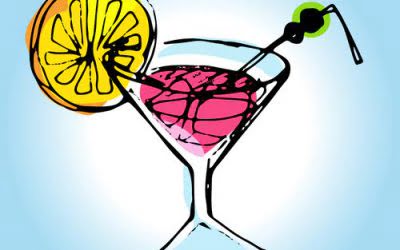Several findings point to differences in the ways that recovering and nonrecovering counselors may understand addiction, conceptualize their patients’ problems, and ultimately perform their jobs. For instance, Lawson et al. found that recovering counselors were more likely than nonrecovering counselors to diagnose alcoholism when given the same information about a potential patient [15]. Stöffelmayr et al. found that recovering counselors used a wider range of treatment techniques and goals than their nonrecovering colleagues [16]. Curtis and Eby found that recovering counselors had higher affective professional substance abuse counseling commitment to their work than nonrecovering counselors; however recovery status did not predict organizational commitment [17]. Olmstead et al. suggested that the comparatively lower salaries earned by recovering counselors could be due to their sense of personal commitment to the field, which results in willingness to take lower-paying positions even when they have a relevant college or graduate degree [18]. These existing findings on differences by recovery status are of increasing importance as researchers recognize the role of diverse counselor factors in the dissemination of ESTs [19].
This may involve working with people with alcohol use disorders, but they may also work with clients with substance use disorders involving drugs such as cocaine, heroin, marijuana, and prescription medications. Inpatient treatment centers typically have counselors on staff to schedule regular meetings with patients and monitor the alcoholic’s recovery. They typically work closely with other members of the inpatient staff, so they can address problems quickly. In some cases, they may learn about other aspects of your treatment through other staff members who are coordinating your care, so your treatment may be more thorough.
Participants
As a result of the FDA’s recent approval action, Narcan 4 milligram (mg) naloxone hydrochloride nasal spray will be available on a nonprescription basis. Addiction counselors work in a variety of professional settings, from community mental health centers to state and federal government agencies. As a licensed addiction and mental health counselor, you can also open your own private counseling practice. Bureau of Labor Statistics, employment of substance abuse counselors is projected to grow 23 percent from 2020 to 2030. As a licensed counselor with a master’s degree, you can look forward to a strong job market and reliable employment.
According to the National Survey on Drug Use and Health, about 15 percent of Americans 18 or older needed treatment for substance abuse (now more appropriately called “substance use disorder”) in 2020. The same report found that less than 10 percent of people who needed treatment for substance use disorder received it. The need for well-trained counselors who can diagnose, assess and treat addiction is greater than ever—for those who have never received treatment and for the millions of people who benefit from counseling services every day. It is also based on complete data and thus when items were unavailable the respondent was not included in the analysis.
Provider & Workforce
This is because the potential benefits of administering naloxone and potentially saving a life outweigh the risks of not administering it. Shortly after Narcan 4mg becomes available on retail shelves as a nonprescription product, a practitioner may still prescribe it as an over-the-counter product. The timing for when nonprescription naloxone products will be available for purchase in your community will be determined largely based on when manufacturers ship the products to pharmacies, grocery stores, and other retail settings. One company that manufactures nonprescription naloxone nasal spray recently indicated that it has started shipping the product to stores. We anticipate that FDA-approved nonprescription naloxone made by other companies will follow. The timing for when nonprescription (also referred to as Over-the-Counter) naloxone products will be available for purchase in your community will be determined largely based on when manufacturers ship the products to pharmacies, grocery stores, and other retail settings.
- If you have health insurance, you are encouraged to contact your insurer for a list of participating health care providers and facilities.
- By promoting improved access to naloxone in non-healthcare settings, we can all help ensure that individuals at increased likelihood of opioid overdose have access to life-saving resources and support, while also promoting safer and healthier communities for all.
Other grant programs, such as FR-CARA, Prescription Drug Overdose, and Harm Reduction, also provide for grantees to purchase and distribute naloxone as part of their efforts to address the opioid overdose epidemic. HRSA-supported health centers and Rural Communities Opioid Response Program (RCORP) grants also allow grant recipients to purchase and distribute naloxone in underserved and HRSA-designated rural areas. Nonprescription drugs are required to be safe and effective for use without oversight or training by a healthcare professional.
Do I need health insurance to receive this service?
REBT assists with understanding one’s thoughts and developing better habits and positive thinking. Once someone is working in the field, the next step to further their education is to earn a doctorate. Standards vary from state to state, but most require a certain amount of education, hands-on work, and ongoing training. Most states require counselors to participate in a supervised internship as part of their coursework.
























